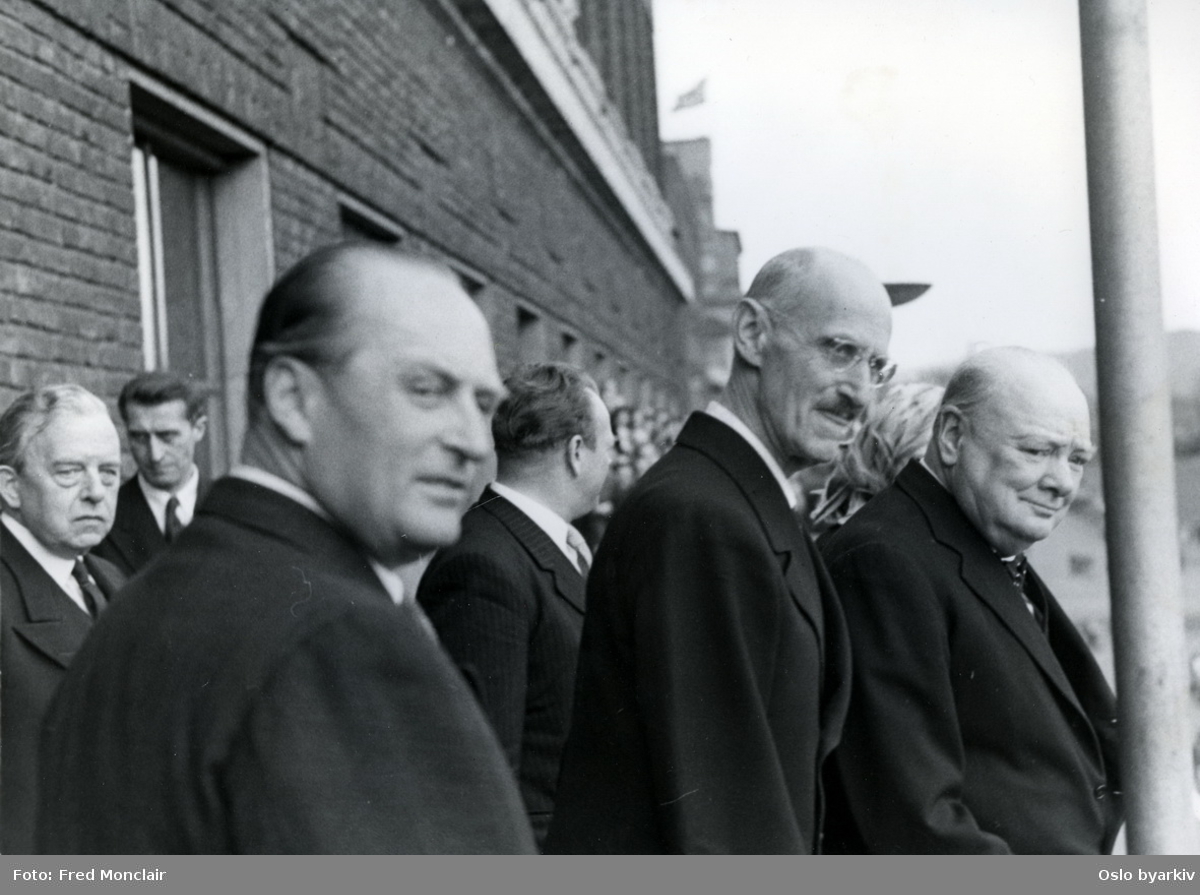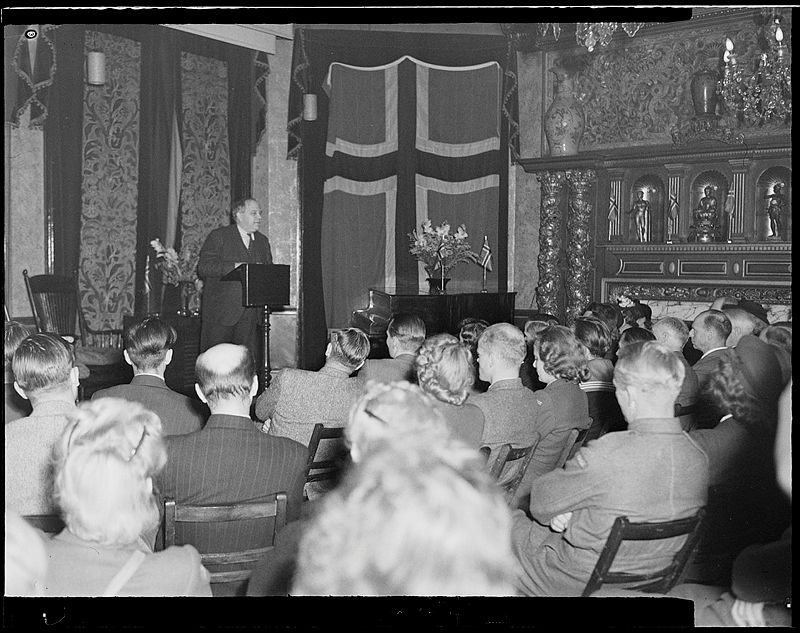Conservatism at the Crossroads
Conservatism at the Crossroads:
A Comparative and Transnational History of Conservatism in Britain and Scandinavia in the Mid-Twentieth Century
 Winston Churchill, leader of the British Conservative Party, visiting Oslo in 1948 to receive an honorary doctorate from the University of Oslo. Here he is pictured with Crown Prince Olav and King Haakon 7. After the British Conservative Party’s general election defeat in 1945, Churchill played the role of world statesman while others in the Party focused on rebuilding the Party machine and its intellectual capacity. Both aspects of the Party’s recovery inspired Scandinavian Conservatives as they sought to do the same.Photo: Fred Monclair/Oslo byarkiv
Winston Churchill, leader of the British Conservative Party, visiting Oslo in 1948 to receive an honorary doctorate from the University of Oslo. Here he is pictured with Crown Prince Olav and King Haakon 7. After the British Conservative Party’s general election defeat in 1945, Churchill played the role of world statesman while others in the Party focused on rebuilding the Party machine and its intellectual capacity. Both aspects of the Party’s recovery inspired Scandinavian Conservatives as they sought to do the same.Photo: Fred Monclair/Oslo byarkivAbout the project
This research project identifies and assesses the historical and contemporary significance of external thinking on British and Scandinavian Conservatism in the mid-twentieth century. Conservatives had to re-evaluate their political ideas in response to the challenges of the Great Depression, the Second World War, and the rise of Labour or social democratic politics in this period. These challenges cemented the breakdown of a global economic system that had been built on nineteenth century ideals of liberal democracy. In Britain and the Scandinavian countries this resulted in the transition from the old liberal order to a new social democratic one after 1945.
This project explores how British and Scandinavian Conservatives adapted their ideas in response to calls for more state intervention in economic and social policy. In doing so, it focuses on the degree to which British and Scandinavian Conservatives opened themselves up to transnational (or foreign) influences when they had to rethink these important aspects of their Conservatism. By comparing Conservative contributions to the adaption of democratic politics in this period we can research the similarities and differences of British
and Scandinavian Conservative thought. We will then be able to compare the development of Conservatism in Northern Europe with the politics of Christian Democratic parties in Central Europe, which played instrumental roles in the history European integration after the Second World War.
The main issues raised by this project will inform contemporary debates about the limits of state intervention in the twenty-first century and increase our knowledge of the roles of British and Scandinavian Conservatives in the history of European integration.
The project team explores these issues using Conservative Party Archives, Conservative-leaning newspapers and periodicals, and Conservative politicians and officials’ private papers in Britain, Norway, Denmark, and Sweden.
 C.J. Hambro, President of the Norwegian Parliament and leader of Høyre in the Norwegian Parliament, speaking to a Norwegian youth group in exile in London in 1943. Hambro was well-known to prominent British Conservatives and the Party organisation. Photo: Riksarkivet
C.J. Hambro, President of the Norwegian Parliament and leader of Høyre in the Norwegian Parliament, speaking to a Norwegian youth group in exile in London in 1943. Hambro was well-known to prominent British Conservatives and the Party organisation. Photo: RiksarkivetProject Members
The project is funded by The Research Council of Norway as part of its ‘Young Research Talents’ scheme.

